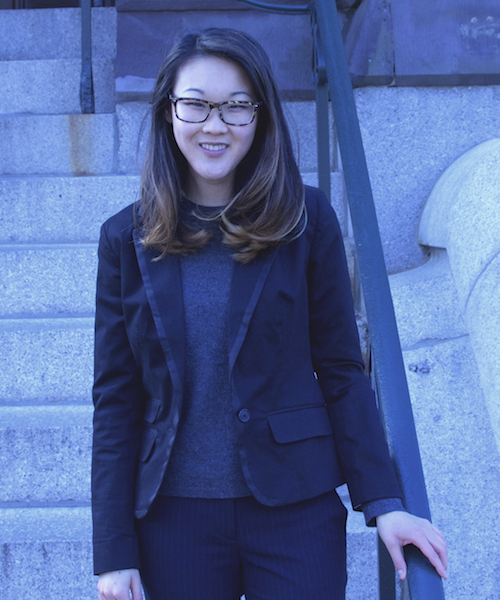
Pessimism Doesn’t Help Address Divergent Interests between China and United States
Xiaogu Xu | 2019年7月12日
注:中英文网站上发表的学生日志均为英文。
A nationalistic tune titled “Trade War” made the rounds on Chinese social media in May following the breakdown in U.S.-China trade talks. Written by retired Chinese official Zhao Liangtian, the song is set to the tune of a wartime propaganda song about the Japanese invasion of China. And although one viral post doesn’t reflect the attitudes of 1.4 billion people, it shows that the Chinese proverb “Heaven is high and the emperor is far away” no longer holds sway with regards to the trade war; it is now a “People’s War,” as the hardline Chinese publication The Global Times put it. At around the same time, the U.S. State Department’s Director of Policy Planning Kiron Skinner identified the conflict with China as particularly challenging because it is, “the first time that we will have a great power competitor that is not Caucasian.” Jingoism, racism, and the language of a culture war on both sides of the Pacific make me pessimistic about the next decade of U.S.-China relations.
In another blog, I wrote that those who feel pessimistic ought to keep in mind “the everyday engagement that keeps the U.S.-China relationship alive.” American businesses continue to do business in China, academic institutions (like the U.S.-China Dialogue on Global Issues) keep up exchanges, and people-to-people exchange through tourism and other contact occurs on a daily basis. But the past couple months have eroded my confidence in some of these previous anchors of the U.S.-China relationship.
In April, the American Chamber of Commerce in China’s annual business climate report stated that the “U.S. business community in China, so long an advocate of good bilateral relations, can no longer be relied upon to be a positive anchor.” The bifurcation (trifurcation, if you are concerned about the U.S. trade relationship with Europe as well) that many feared but did not think would happen is finally coming to pass. Businesses in China no longer grudgingly accept some painful concessions in exchange for Chinese market access, but instead many are quitting altogether (Amazon and Forever 21 are two notable e-commerce exits of late). Even resolving the trade dispute in the next year or so may not bring these companies back. Businesses prize stability, especially for capital-intensive investments in manufacturing facilities and supply chains. Establishing relationships with distributors, joint-venture partners, and subcontractors takes time, money, and—importantly—trust. If the U.S.-China trade relationship is defined by instability for too long, even American companies with few complaints against the Chinese government will figure that it is not worth the effort to operate a business in the country if they’ll be used as a bludgeon in a trade dispute that they couldn’t care less about.
The academic relationship is also under stress. The United States started a visa war with China over visiting academics. And while you could argue that not allowing some Chinese AI or other high-tech researchers to study in the United States is a way to protect our intellectual property, rejecting the visas of international relations scholars merely undermines the American ability to understand the other side and engage in multi-track dialogue. Similarly, American universities have been closing their Confucius Institutes this year after the National Defense Authorization Act threatened to take Defense Department funding for Chinese language study away from universities hosting Confucius Institutes. Some China watchers have raised a stink about Confucius Institutes as nefarious Chinese influence operations, but most acknowledge that they are pretty harmless cultural and language centers that promote learning about and engagement with China. Most estimate that 2019 will see a steep decline in Chinese enrollment in American higher education institutions, which is bad for the institutions themselves and American global interests. Chinese students account for a third of the international population at American universities, and are a crucial part of the tuition makeup, more frequently paying full or close to full tuition than domestic students. The University of Illinois at Urbana-Champaign even took out an insurance policy to protect against what they expect to be a drop in Chinese enrollment. More importantly, the United States has indisputably the best higher education in the world, and that preeminence allows America to educate foreign business and political leaders of other countries in American norms and values. Losing that edge in China will only weaken mutual understanding and the bilateral relationship.
The basis of the relationship, however, will remain rooted in the people. I spent the past semester interning with the U.S. Consulate in Shanghai, and to be honest I did feel that Heaven is high, and the emperor is far away. I was walking home in the rain the other day and accidentally bumped into a stranger while balancing my pizza in one hand and using the other to shield it from the rain. I looked up to apologize, but he instead told me where he was walking and offered to share his umbrella if we were walking the same way. I happily accepted his offer (tried to pay him with a bite of my pizza, which he politely refused), and we chatted as we walked. When I told him I worked at the consulate, he asked what I thought about the trade war. We both laughed and agreed that it is a difficult situation, quickly getting back to talking about where he’s visited in the U.S., my favorite Chinese food, and Game of Thrones. Despite stories of Apple boycotts and professors attacking Chinese students for speaking Chinese, people-to-people relations have not yet reached their nadir. I fear what will happen when they do.

Xiaogu Xu | 2019年7月12日

Yihong Shi | 2019年7月12日

Zhaoqing Li | 2019年7月12日

Danny Li | 2019年7月11日

Isabelle Hupez | 2019年7月11日

Ivan Solomon | 2019年7月11日

Jozanne Murphy | 2019年7月11日

Lakshmi Iyengar | 2019年7月11日

Andrea Su | 2019年7月10日

Chang Fan | 2019年7月10日

Junming Cui | 2019年7月10日